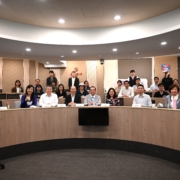【Event Report】2025 Health Insurance Legal Innovation Symposium Explores Drug Cost-Sharing, Telemedicine, and Corporate Social Responsibility in the National Health Insurance System
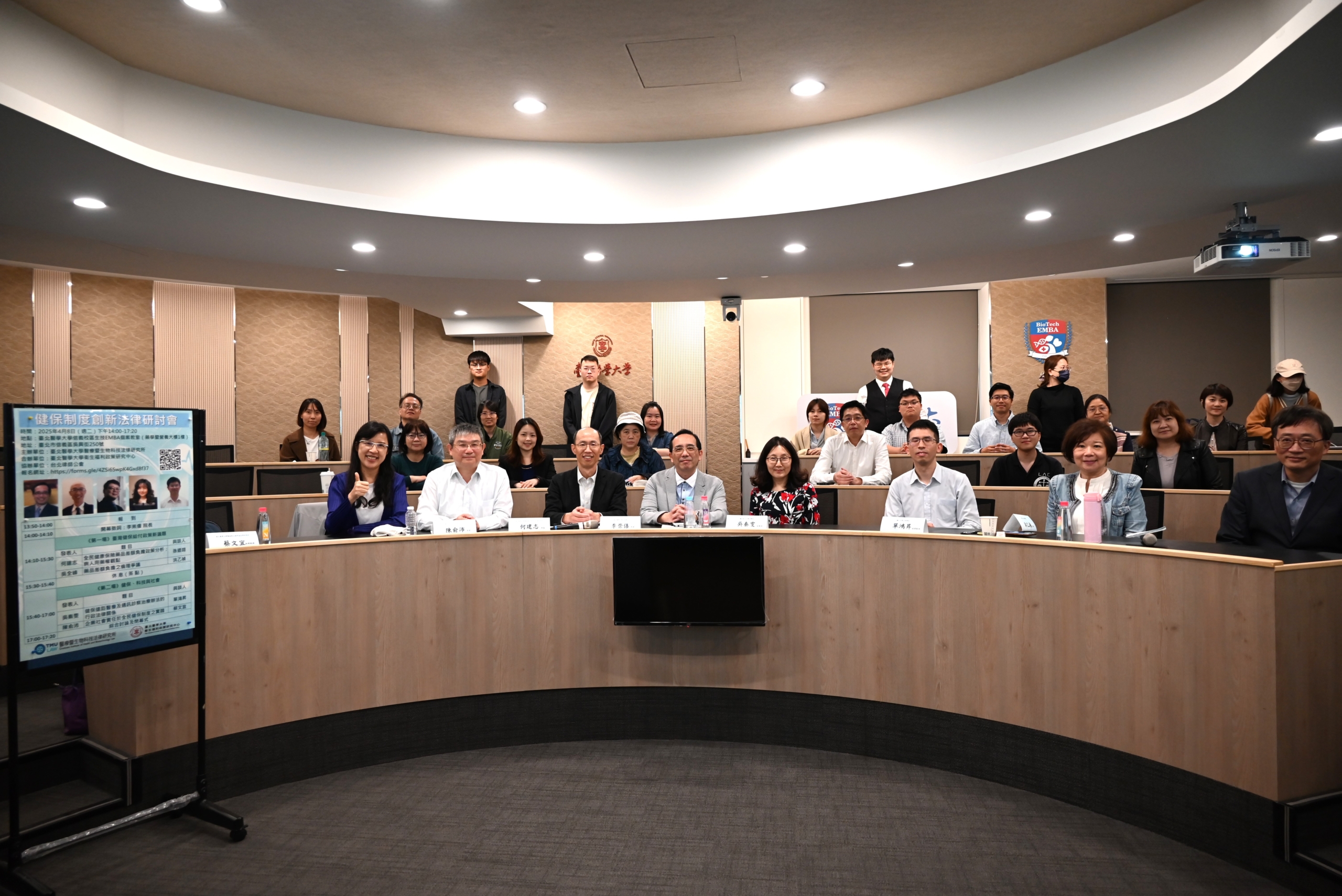
The Institute of Law for Medicine and Biotech and the Center for Health and Welfare Policy at Taipei Medical University jointly hosted the 2025 Conference on Legal Innovations in Taiwan’s National Health Insurance System on April 8. The conference featured vibrant and in-depth discussions among scholars, experts, and participants on key topics including differential drug co-payment, telemedicine, and the role of corporate social responsibility (CSR) in the implementation of universal health coverage.
Dean Lee Chung-Hsi, College of Humanities and Social Sciences, Taipei Medical University
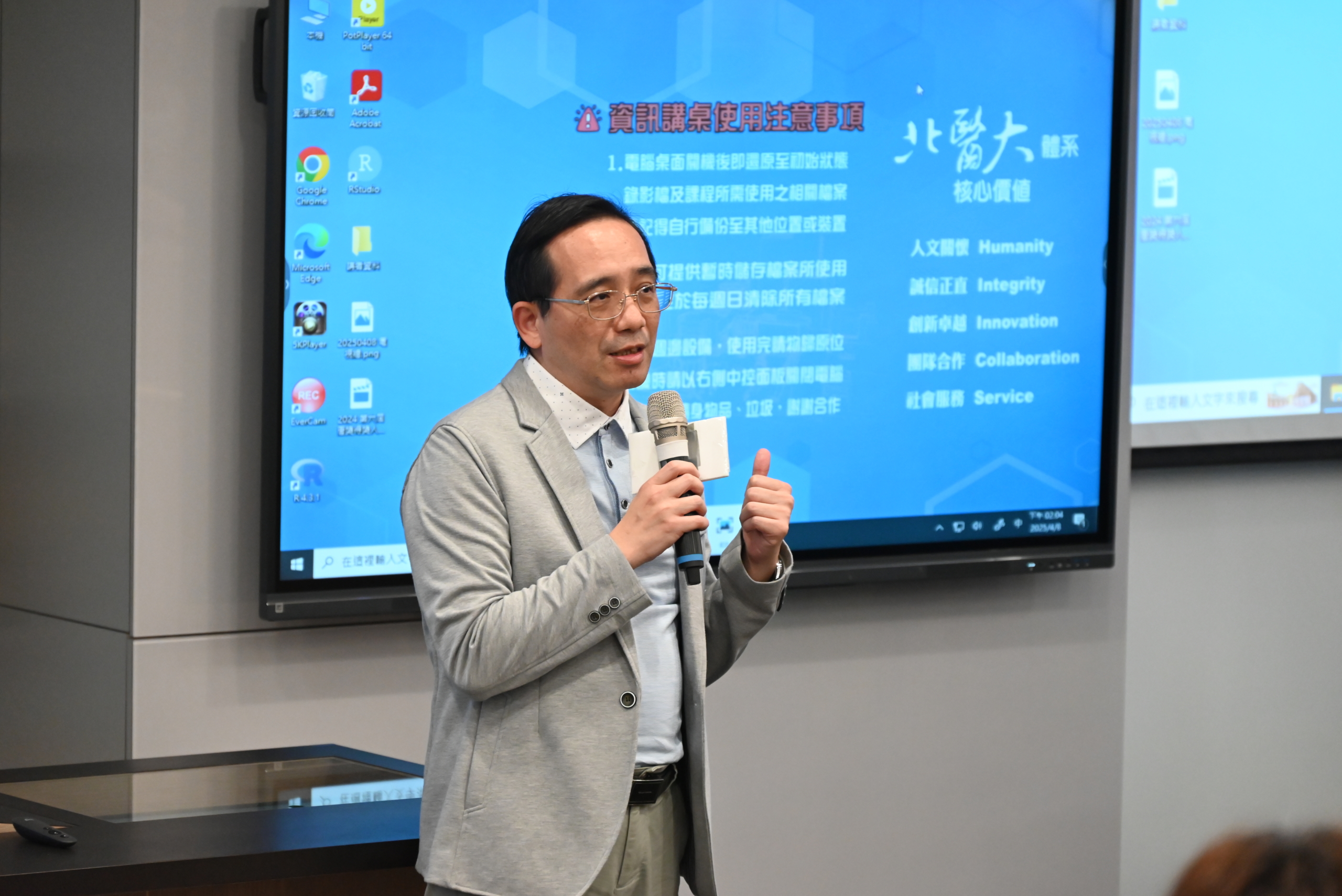
In his opening remarks, Dean Lee highlighted the wide range of participants from fields such as law, economics, patient advocacy, and the biotech and pharmaceutical industries. This diversity reflects the many pressing issues that Taiwan’s National Health Insurance (NHI) system faces after nearly 30 years of implementation. He expressed hope that the conference would serve as a platform for interdisciplinary dialogue, sparking innovative and constructive ideas to ensure the long-term sustainability of Taiwan’s NHI.
Director Ho Chien-Chih, Institute of Law for Medicine and Biotech, Taipei Medical University
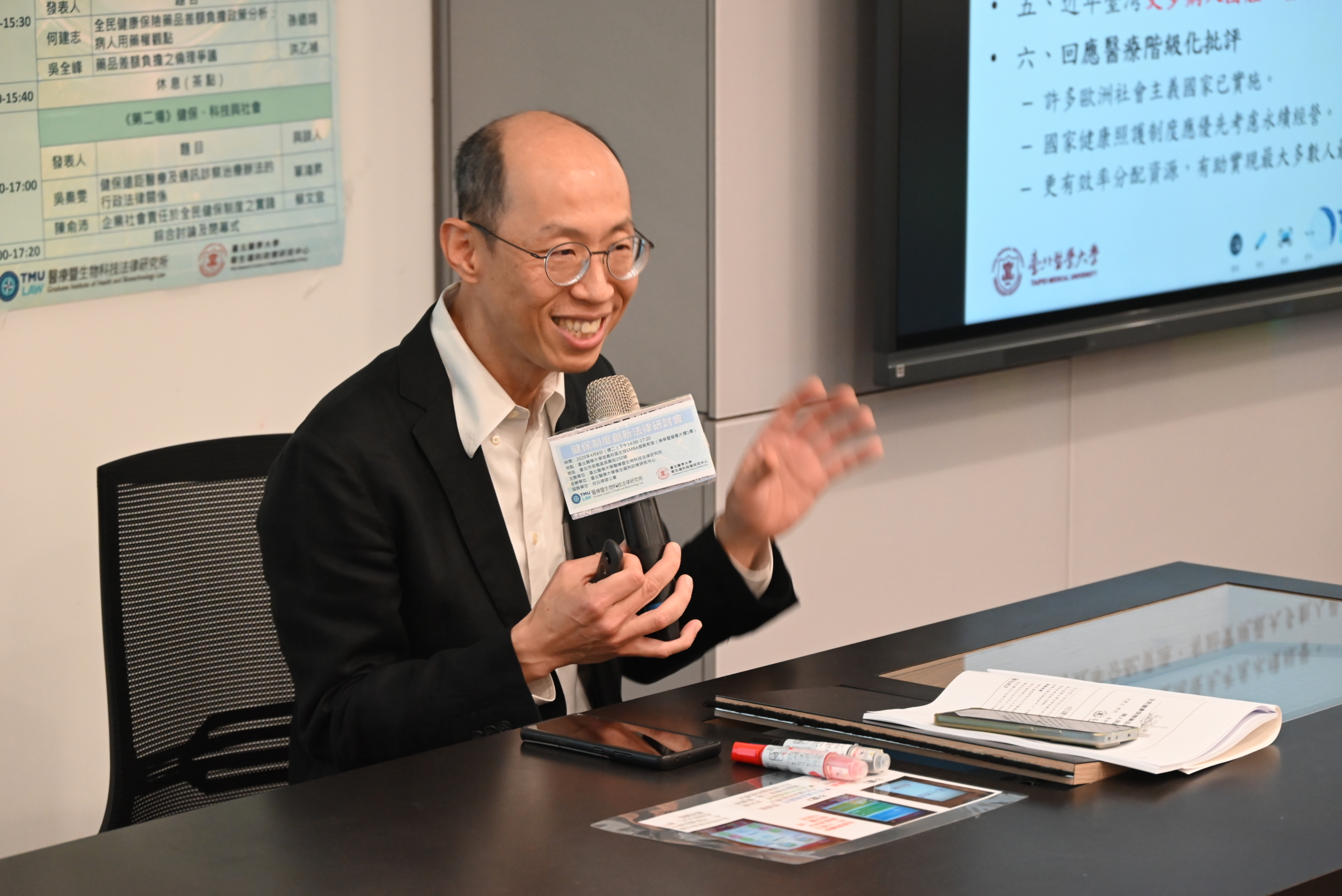
Director Ho presented a paper on the differential drug co-payment system, which was first implemented in Germany in 1989 and later adopted by over 20 EU countries, Canada, and New Zealand. The goals of this policy are to: 1) encourage the use of generic drugs; 2) promote price competition among pharmaceutical companies; 3) reduce government healthcare expenditures; and 4) incentivize manufacturers to improve drug efficacy. International empirical evidence suggests that the benefits outweigh the drawbacks. Japan also introduced this system in 2024 to control rising drug costs. Although Taiwan considered adopting the system in 2015, public concerns halted its implementation. Recently, however, support from the medical, pharmaceutical, and patient communities has grown. Director Ho emphasized that to protect vulnerable groups, legislation could exempt children, low-income households, and patients with rare diseases from co-payments—thereby balancing fiscal sustainability with equitable drug access.
Professor Sun Nai-Yi, Department of Law, National Taiwan University
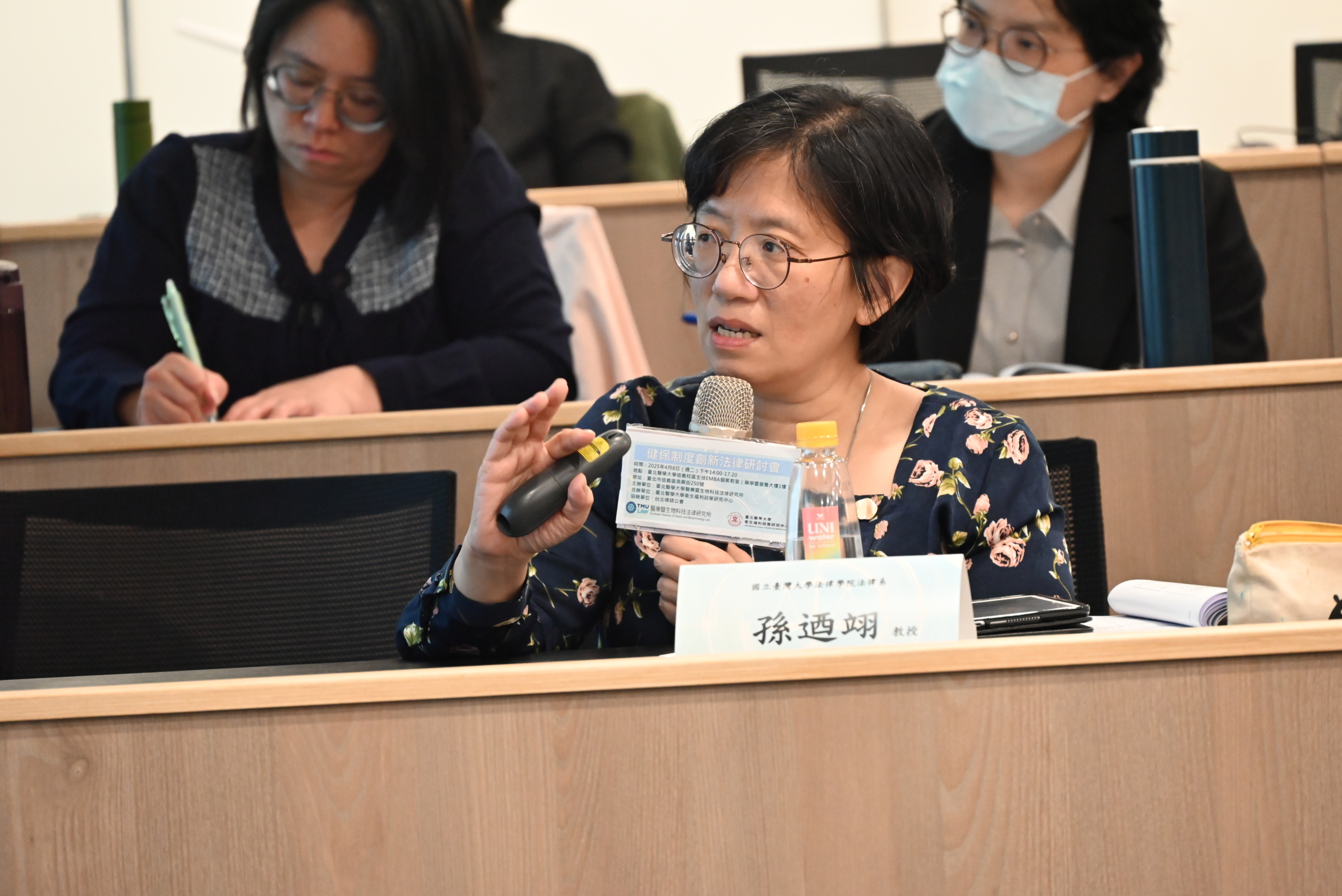
Professor Sun discussed Germany’s reference pricing system, a form of differential co-payment under its Social Code. In Germany, a federal joint committee sets reference prices for drugs based on expert opinion; patients pay any cost exceeding the reference price out of pocket, with no reimbursement from statutory health insurance. However, this system excludes pediatric drugs and new or significantly innovative patented medicines. Legally, this is considered indirect market intervention, and the Federal Constitutional Court has ruled that it does not violate the professional freedom of pharmaceutical manufacturers, thus affirming its constitutionality.
Associate Research Fellow Wu Chuan-Feng, Institutum Iurisprudentiae, Academia Sinica
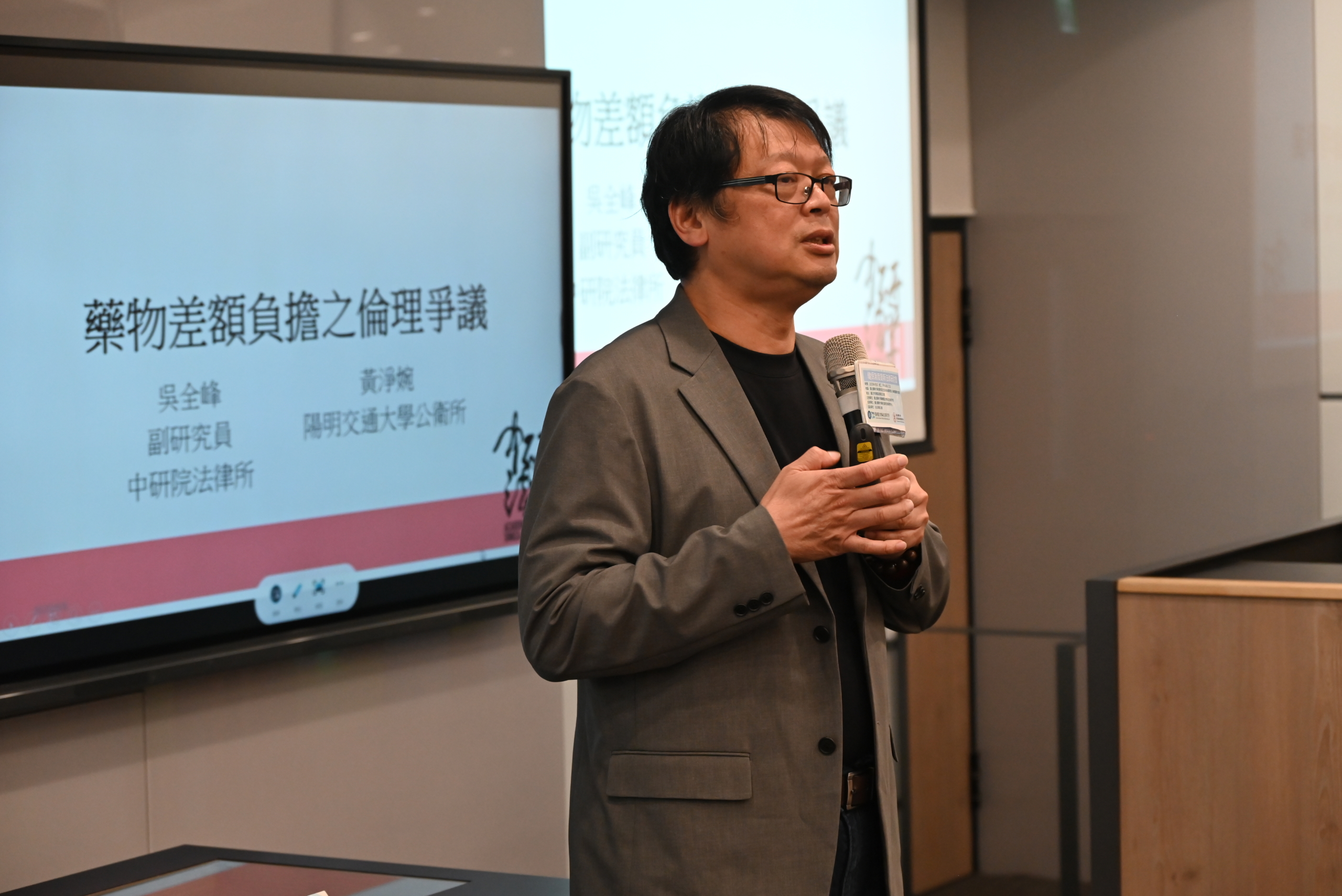
Dr. Wu offered an ethical perspective on the co-payment system. While it aims to reduce costs and provide patients with medication choices, it may also raise equity concerns. Without proper safeguards, requiring out-of-pocket payments may worsen inequality, limiting options for those who cannot afford the co-payment. He also pointed out issues such as unclear inclusion criteria and doubts about the interchangeability of some drugs. Wu stressed that by learning from Western models and ensuring equal access to basic health services, Taiwan could develop fair reference drug groups and pricing mechanisms that balance patient choice, NHI sustainability, and the right to health.
Professor Hung Yi-Chen, Department of Economics, Chinese Culture University
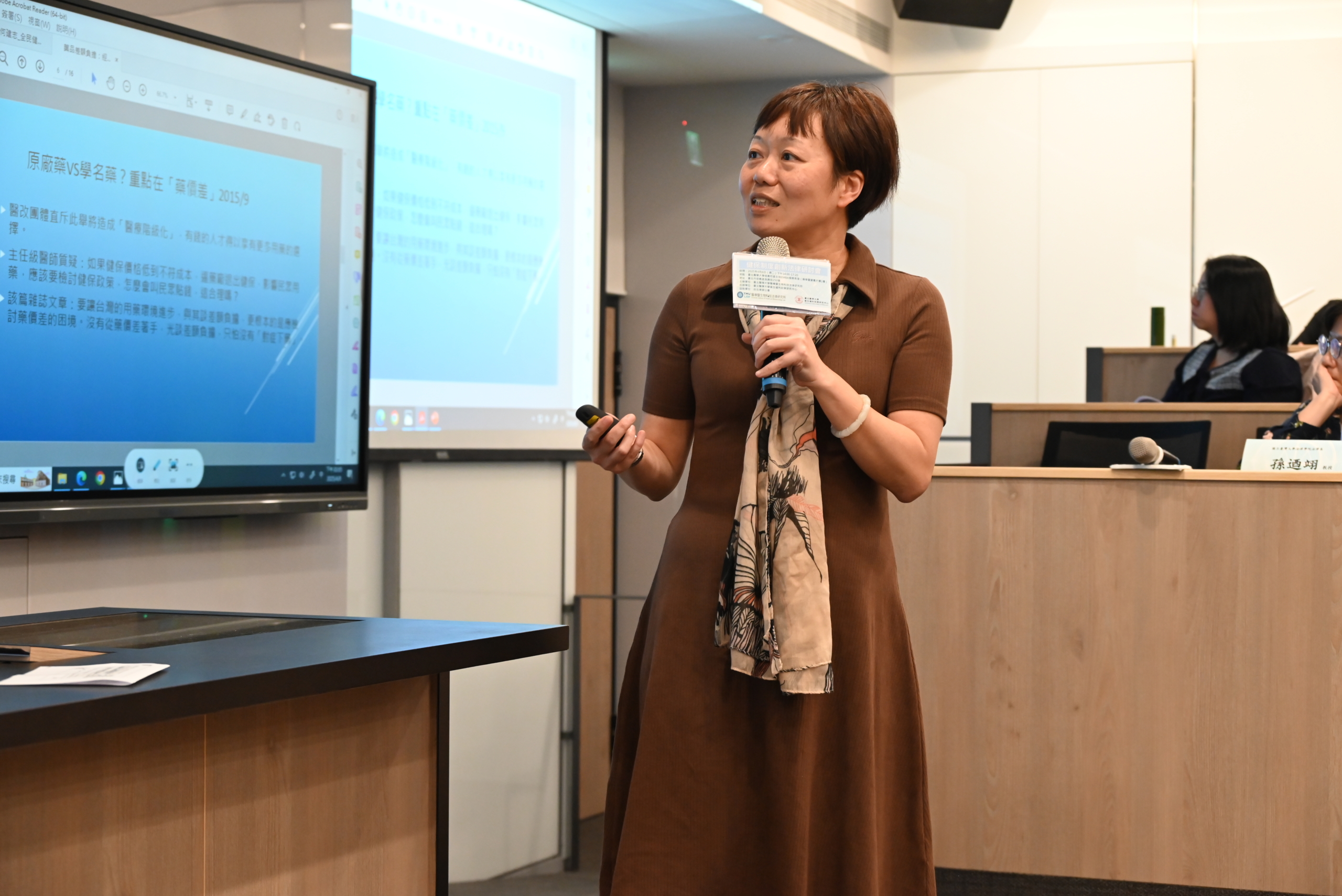
Professor Hung observed that under a global free-market system, a single government cannot fully control drug prices. From an economic standpoint, having options is always preferable to having none, and restricting choices could harm patients’ autonomy and well-being. From a marginal benefit perspective, she argued that differential co-payment causes relatively little market distortion and provides a practical way to balance fiscal pressures with health rights.
Associate Professor Wu Chin-Wen, Department of Law, National Chengchi University
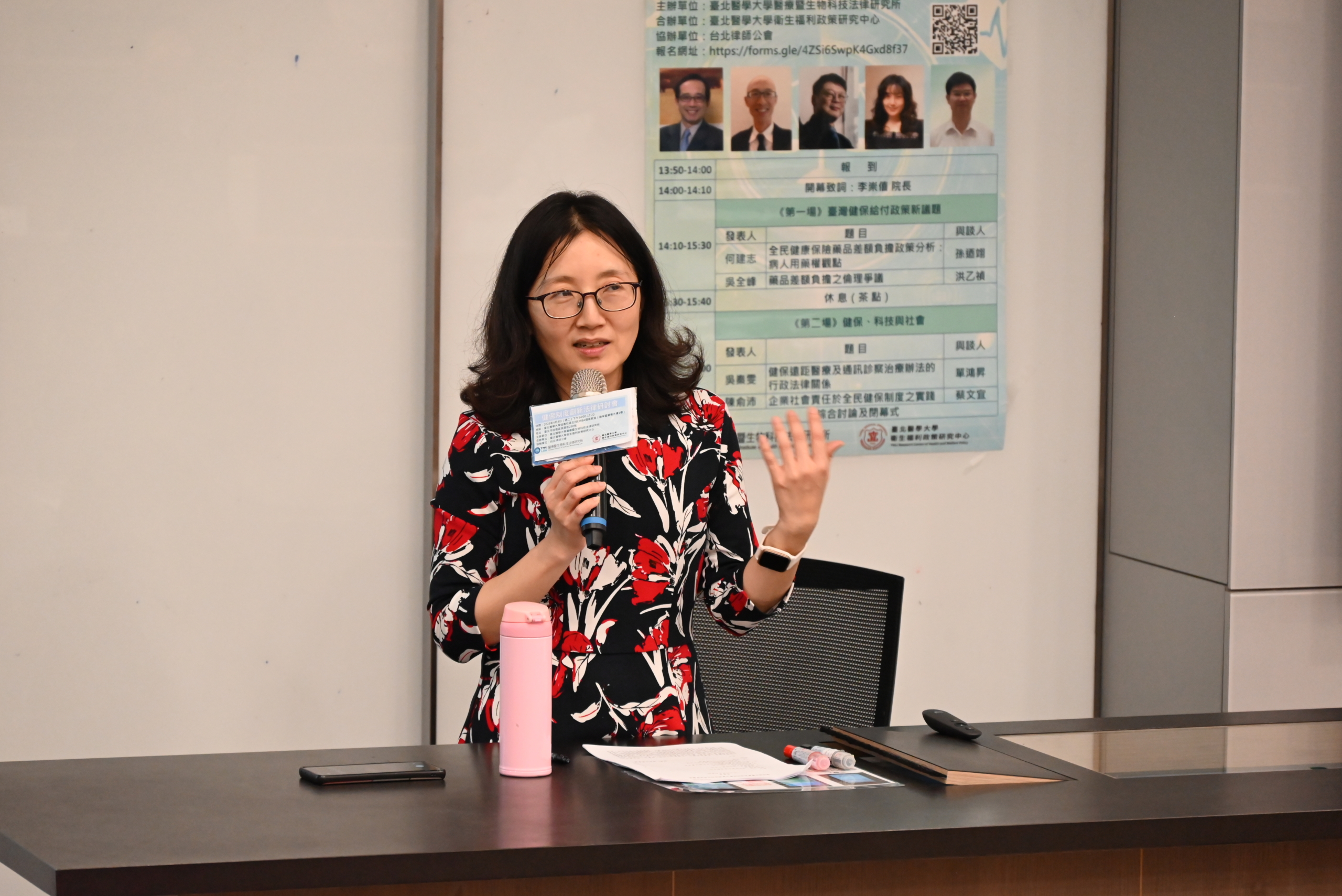
Professor Wu introduced the relatively underexplored legal frameworks for telemedicine in the EU and France. She noted that Taiwan lacks a clear policy goal for telemedicine—whether it aims to enhance competitiveness or improve access and convenience. Existing laws and regulations fail to articulate a coherent purpose. In contrast, the EU has clearly stated since 2005 that telemedicine should ensure the free movement of patients and promote cross-border healthcare. France’s 2010 Digital Health Law classifies telemedicine into five categories: teleconsultation, tele-expertise, remote health monitoring, tele-assistance, and medical response. Compared to this, Taiwan’s current telemedicine classifications remain fragmented. She also criticized Taiwan’s top-down, authority-driven model for lacking patient engagement and participatory governance.
Assistant Professor Shan Hung-Sheng, Department of Law, Fu Jen Catholic University
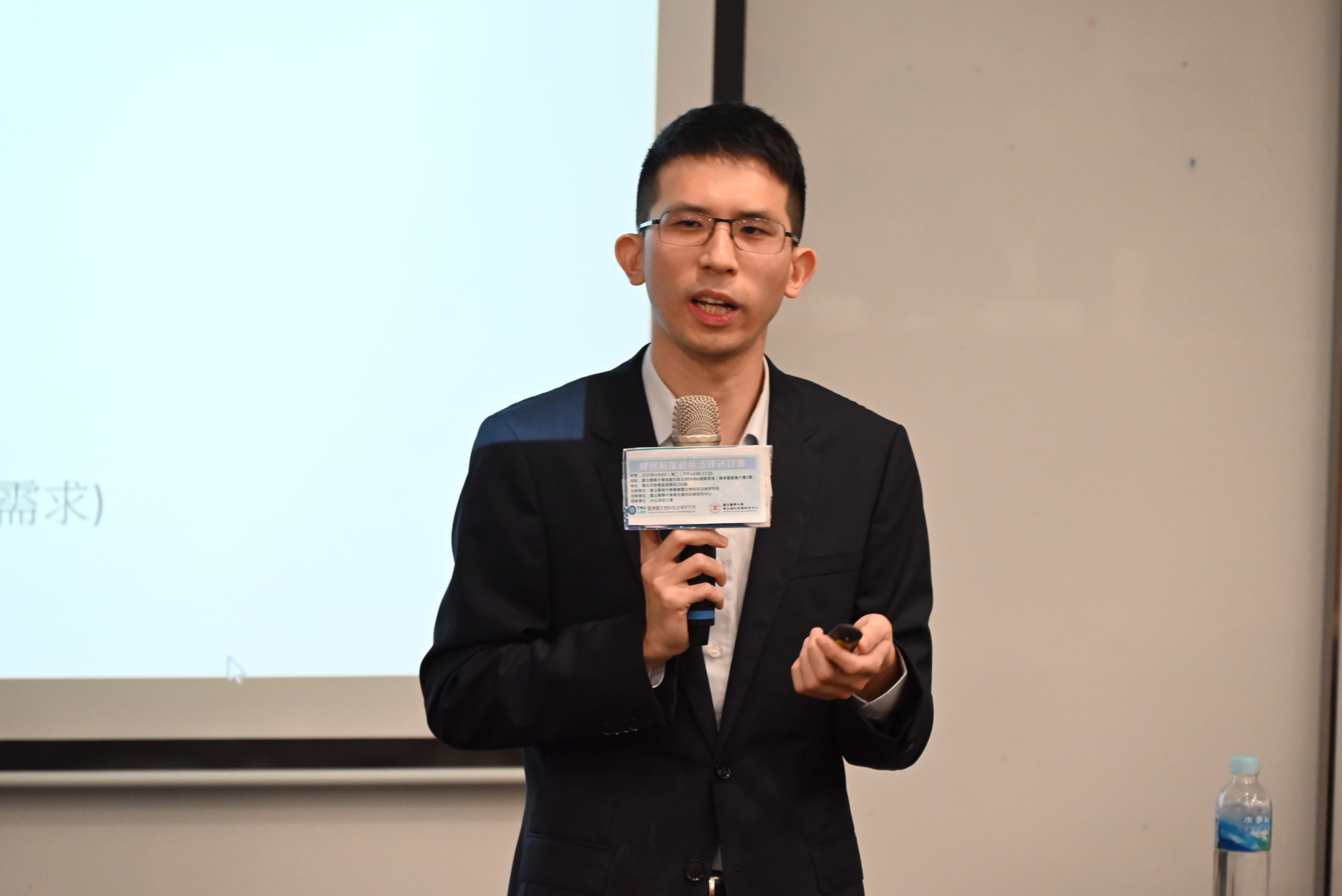
Professor Shan pointed out that in Taiwan, eligibility for telemedicine and NHI reimbursement are regulated separately, with restrictions by region and specialty. For instance, the same medical specialty cannot operate both ends of a telemedicine consultation, which limits accessibility. He proposed three potential regulatory models: 1) strict limitation on eligible users and scenarios, 2) exclusion of first-time consultations, and 3) case-by-case approval for specific instances.
Dr. Chen Yu-Pei, Director of Chinese Medicine, Tainan Hospital, Ministry of Health and Welfare
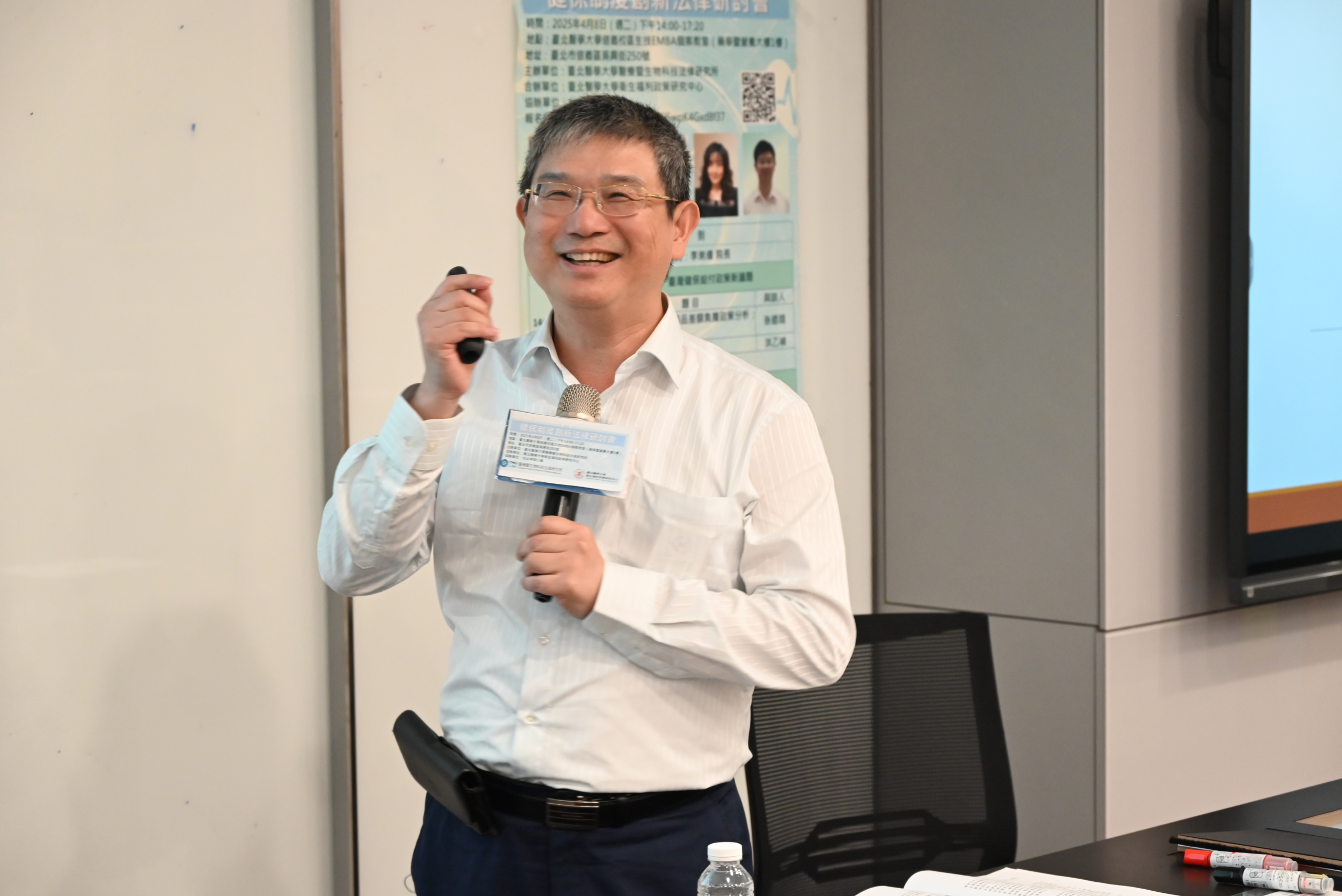
Dr. Chen addressed the intersection of the right to health and corporate social responsibility. He noted that the right to health has been affirmed by multiple rulings of Taiwan’s Constitutional Court. He also highlighted how Taiwanese laws such as the Climate Change Response Act, Company Act, and Securities and Exchange Act—as well as various labor laws—have incorporated ESG principles. He emphasized that ESG represents a philosophy of “giving back to society,” aligning with the NHI’s concept of social solidarity and resource redistribution. He proposed that companies responsible for pollution should be held accountable for the resulting health risks. Businesses that profit from health-risk products such as tobacco, alcohol, betel nut, or unhealthy foods should likewise bear social responsibilities. Possible measures include legislative amendments to impose taxes, special levies, or expanded NHI subrogation rights, all aimed at contributing to NHI financing and mitigating corporate harm to public health.
Assistant Professor Tsai Wen-Yi, Institute of Law for Medicine and Biotech, Taipei Medical University
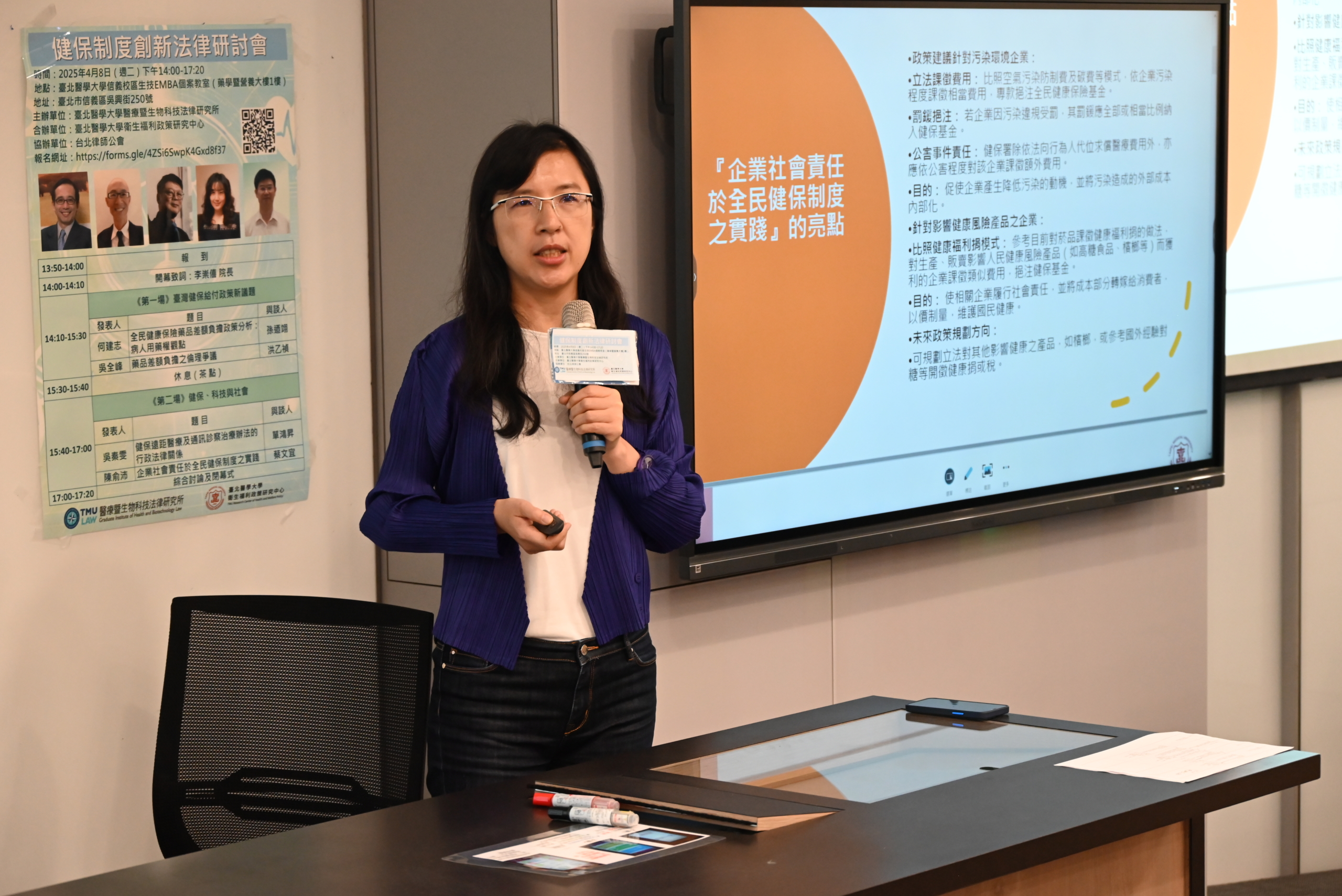
Professor Tsai warned against superficial CSR efforts, such as “greenwashing” or sponsoring sports events that promote sugary products. Such actions may appear socially responsible but fail to address underlying health issues and may even damage a company’s brand. She argued that CSR should align with a company’s core operations and focus on public health to achieve both social impact and business growth. She cited U.S. tech companies as examples of integrating mental health into CSR by offering healthcare benefits beyond legal requirements and organizing wellness activities, thereby achieving a win-win for employee well-being and corporate development.

